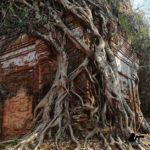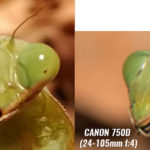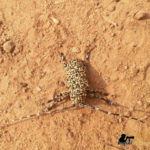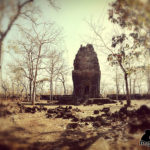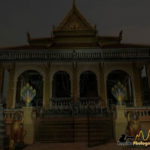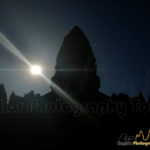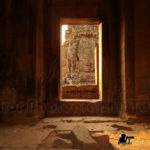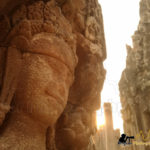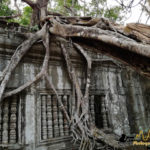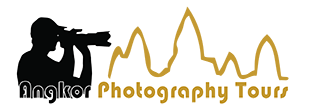I recently upgraded my smartphone to a Huawei P9 lite and took it with me in the temples of Angkor during my photography tours along with a 5D Mark II.
The P9 lite, released in April 2016, packs a 13M-Pixel (4160X3120pixels) CMOS Image Sensor (Sony IMX 214, 1.12µm pixels) with a f:2.0 front camera. It lacks the dual Leica lens system and raw capture from his counterpart the Huawei P9 plus. Focal length has a 35 mm equivalent focal length of a 27 mm.
Camera operation
The camera has a quick access and when in standby it is very quick to start. By sweeping left one can access the menu to switch to pro photo. In this mode, shutter speed, ISO and white balance can be changed. When shutter speed is determined by the camera, exposure can be adjusted with the exposure compensation slide (-4 to +4 eV). Three focus mode are available: AF-S (spot), AF-C (continuous) and MF (manual focus). White balance can be changed to the usual values from tungsten to cloudy. Like in many DSLR, 3 metering modes are available: spot, center-weighted and evaluative. ISO can be set between 100 and 1600 ISO. In auto, the camera can set it as low as 50 ISO.
HDR mode
HDR can be useful to get more details in the shadow. The HDR mode of the P9 quite good , however there is no option to chose the strengh of the processing. It works particularly well with textures like on this 9th century temple strangled by a tree in the lost city of Koh Ker in Cambodia.
Macro
The P9 do not have a dedicated function for macro but the focusing distance of about 3 cm make up for it. The amount of details picked up by the camera is quite impressive. This macro shot of a praying mantis was shot in a very bright light and the details are in the same levels than a DSLR (the DSLR shot being slightly out of focus). For comparison you can see below a cropped version of the P9 and a Canon 750D side by side:
Panorama mode
Panorama mode is accessed from the camera by sweeping up the screen from the left. From there is an option to do either horizontal or vertical panorama.
Generally the stitching is quite good although errors can happen at low ambient light. One of the main drawback I have found is that it is not possible to lock the exposure before taking a panorama so it high contrasted scenes are difficult to capture.
Night Photography
Light painting on a pagoda. Pro photo mode 8 s pose, ISO 100
Swiping up the screen from the left let you choose two modes: night shot and light painting. In night shot mode, ISO can be set up between 100 and 1600 ISO and shutter speed up to 32 seconds. Using the 2-second timer (by swiping up screen from the right) helps to avoid blurry pictures.
The second mode available is Light painting and has 3 presets: Tail lights, Light graffiti, Silky water and Star track. They differentiate themselves by the ISO settings: Tail lights, Light graffiti: 64 ISO / Silky water: auto ISO / Star track: 800 ISO. All presets allow very long exposure time, the camera stays open until the shutter button is pressed again. Pro mode can be used for night photography but exposure time is limited to 8 seconds.
The Light graffiti preset was designed to write letters or paint shapes in the dark with a LED light but it can be used in more creative ways to create abstract backgrounds like this backlit laptop keyboard below.
Slow Motion
The Huawei P9 can record slow motion at 120 fps but be aware that the resolution is quite low at only 640X480 pixels (VGA). You can see on the video below of a lotus flower opening, both normal and slow motion sequences (4 times slower).
Conclusion
The Huawei P9 lite is the ideal companion for any travel photographer and has a good image quality. Of course it cannot be compared to a DSLR but in some situations it can the best camera as it can fit in your pocket. The different modes available allow you to produce some really creative images.
- Meak Bochea: Celebrating Buddha’s Final Teaching in Siem Reap Cambodia - February 14, 2025
- Angkor Wat Marathon - June 22, 2024
- Timelapse calculator - June 22, 2024
